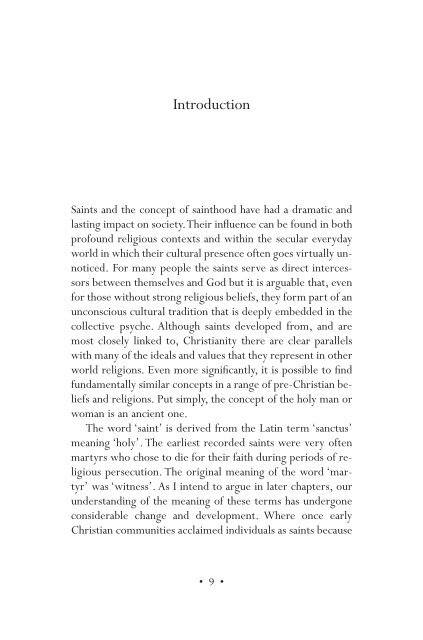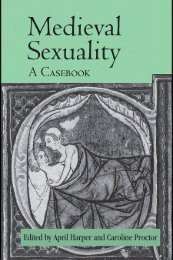02Knights Templar - Julian Emperor
02Knights Templar - Julian Emperor
02Knights Templar - Julian Emperor
You also want an ePaper? Increase the reach of your titles
YUMPU automatically turns print PDFs into web optimized ePapers that Google loves.
Introduction<br />
Saints and the concept of sainthood have had a dramatic and<br />
lasting impact on society.Their influence can be found in both<br />
profound religious contexts and within the secular everyday<br />
world in which their cultural presence often goes virtually unnoticed.<br />
For many people the saints serve as direct intercessors<br />
between themselves and God but it is arguable that, even<br />
for those without strong religious beliefs, they form part of an<br />
unconscious cultural tradition that is deeply embedded in the<br />
collective psyche. Although saints developed from, and are<br />
most closely linked to, Christianity there are clear parallels<br />
with many of the ideals and values that they represent in other<br />
world religions. Even more significantly, it is possible to find<br />
fundamentally similar concepts in a range of pre-Christian beliefs<br />
and religions. Put simply, the concept of the holy man or<br />
woman is an ancient one.<br />
The word ‘saint’ is derived from the Latin term ‘sanctus’<br />
meaning ‘holy’. The earliest recorded saints were very often<br />
martyrs who chose to die for their faith during periods of religious<br />
persecution. The original meaning of the word ‘martyr’<br />
was ‘witness’. As I intend to argue in later chapters, our<br />
understanding of the meaning of these terms has undergone<br />
considerable change and development. Where once early<br />
Christian communities acclaimed individuals as saints because<br />
•9•













